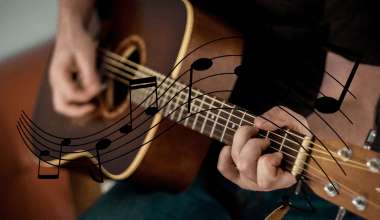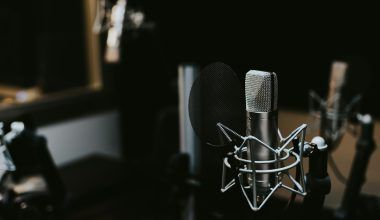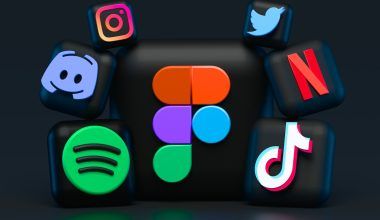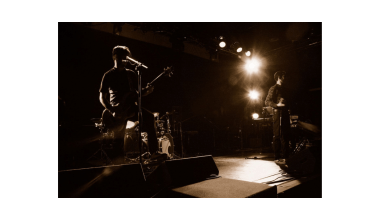What Does Selling Songs to Music Publishers Mean?
Selling your songs to music publishers means giving them the rights to represent your music. This helps you earn money when your songs are used in movies, TV shows, commercials, or performed by other artists. For many songwriters, this is a dream come true because publishers can promote and manage your music in ways that are difficult to do on your own.
If you’ve ever wondered how to sell songs to music publishers, this guide will take you through the process in simple steps. We’ll cover what publishers do, how to prepare your music, where to find publishers, and tips to succeed in this field.
Why Should You Sell Songs to Music Publishers?
Selling your songs to music publishers offers many benefits, including:
- More Exposure: Publishers can pitch your songs to big projects like films or commercials.
- Royalty Collection: They handle the complex task of collecting royalties from different platforms.
- Time to Create: You can focus on writing songs while publishers handle the business side.
- Opportunities to Collaborate: Publishers can connect you with famous artists or producers.
If you want your music to reach more people and earn money passively, working with a publisher is a smart move.
What Do Music Publishers Do?
Music publishers are like partners who help you earn money from your songs. Here are some of their key roles:
- Licensing Your Music: They find opportunities to use your songs in ads, TV shows, or movies.
- Managing Copyright: Publishers make sure your music is protected legally.
- Promoting Your Songs: They pitch your music to artists, labels, and directors.
- Collecting Royalties: They ensure you get paid every time your music is used.
By understanding their role, you’ll know why selling songs to music publishers can transform your career.
How to Prepare Your Songs for Music Publishers
Before you approach a music publisher, it’s important to have everything ready. Here’s how:
1. Create High-Quality Demos
Your demo is like your calling card. It doesn’t have to be a fully produced track, but it should be clean and professional. Use tools like AI mastering to make your demos sound polished.
2. Write Clear Lyric Sheets
Prepare a document with your song’s lyrics. Include your name, contact information, and any copyright details.
3. Register Your Songs
Register your songs with a Performing Rights Organization (PRO) like ASCAP or BMI. This step ensures you get royalties when your music is used.
4. Build a Portfolio
Compile a selection of your best work. Your portfolio should include:
- 5-10 polished demos.
- Lyric sheets for each song.
- A short bio about your musical style and experience.
A strong portfolio makes it easier for publishers to see your potential.
How to Find Music Publishers
Finding the right music publisher can feel overwhelming, but here are some simple ways to start:
1. Online Directories
Websites like Songwriter Universe or Music Publishers’ Association provide lists of publishers. You can find contact details and submission guidelines there.
2. Music Industry Events
Attend songwriting workshops, music festivals, or conferences. These events are great for networking and meeting publishers in person.
Many publishers and agents have profiles on LinkedIn, Twitter, or Instagram. Follow them and engage with their content to build connections.
4. Referrals
Ask other songwriters or producers for recommendations. A personal introduction can increase your chances of being heard.
Types of Music Publishing Deals
Music publishers offer different types of deals. Understanding these can help you decide which one is right for you:
1. Single-Song Agreement
You sell the rights to one song. This is a good option if you want to test the waters with a publisher.
2. Exclusive Songwriter Agreement
You agree to write exclusively for one publisher for a set time. In return, they handle all aspects of licensing and promotion.
3. Administration Agreement
The publisher handles your licensing and royalty collection, but you retain ownership of your songs.
Each deal has its pros and cons, so make sure to read the terms carefully before signing.
Step-by-Step Process: How to Sell Songs to Music Publishers
Here’s a simple roadmap to help you sell your songs to music publishers:
Step 1: Research Publishers
Find publishers who specialize in your genre. For example, if you write pop songs, look for publishers who work with pop artists.
Step 2: Polish Your Demos
Invest in high-quality demos. Even a great song can get rejected if the demo doesn’t sound professional.
Step 3: Submit Your Portfolio
Follow the submission guidelines provided by the publisher. Some accept online submissions, while others prefer CDs or in-person meetings.
Step 4: Follow Up
If you don’t hear back, send a polite follow-up email after 2-3 weeks. Persistence shows that you’re serious.
Step 5: Negotiate the Deal
If a publisher shows interest, discuss the terms carefully. Make sure you understand how royalties will be split and what rights you’re giving away.
What Do Publishers Look For in a Song?
Music publishers look for songs with the potential to make money. Here’s what they often consider:
- Catchy Melodies: A strong hook can make your song unforgettable.
- Relatable Lyrics: Songs about universal themes tend to appeal to a wider audience.
- Professional Quality: Well-recorded demos show you’re serious about your craft.
To improve your chances, make sure your songs are both creative and commercially viable.
Common Mistakes to Avoid
When learning how to sell songs to music publishers, avoid these mistakes:
- Ignoring Guidelines: Always follow the publisher’s submission rules.
- Sending Poor-Quality Demos: First impressions matter.
- Not Protecting Your Rights: Register your songs with a PRO before sharing them.
Tools and Resources for Songwriters
Here are some helpful tools to boost your success:
- AI Mastering Services: Perfect for polishing your demos.
- Songwriting Apps: Tools like Evernote or Soundtrap can help you organize ideas.
- Online Courses: Platforms like Udemy offer lessons on music publishing and songwriting.
Real-Life Examples of Songwriters Who Succeeded
Many famous songwriters started by selling their songs to publishers. For example:
- Ed Sheeran: Early in his career, he worked with music publishers to get his songs to the right artists.
- Diane Warren: She sold some of her earliest songs through publishers, leading to a successful career in pop music.
Their stories prove that understanding how to sell songs to music publishers can open doors to amazing opportunities.
Conclusion: Start Selling Your Songs Today
Selling songs to music publishers is a great way to turn your talent into a career. By following the steps in this guide, you’ll be better prepared to find the right publisher and present your music professionally. Remember, the key is to stay persistent and keep improving your craft.
If you’re ready to take your music to the next level, start building your portfolio today. With patience and effort, you’ll find the right publisher who believes in your songs as much as you do.
Related Articles:
For further reading, explore these related articles:
- How to Distribute Your Own Music Like a Pro: A Complete Guide for Independent Artists
- Promo Cards on Spotify: A Game Changer for Artists
- Understanding ISRC Codes and Their Importance in Tracking and Distributing Your Music
For additional resources on music marketing and distribution, visit Deliver My Tune.






